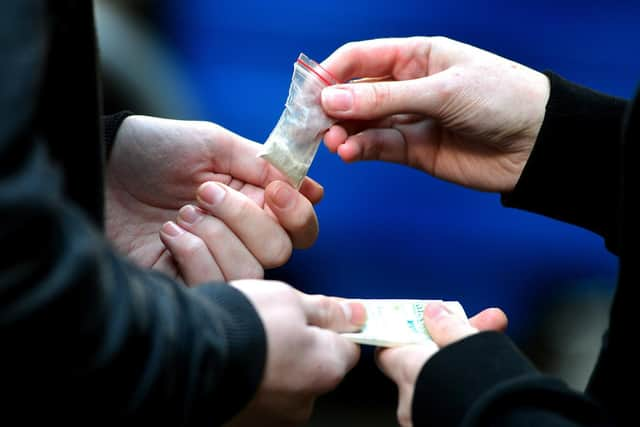Lancashire's educational establishments suffer rise in cannabis offences
and live on Freeview channel 276
Private addiction treatment firm UKAT voiced concern at the data, which shows cannabis and drug trafficking incidents recorded in schools, colleges and universities, and blamed Government education welfare cuts.
The results show in 12 months, drug offences for cannabis possession rose by three quarters, from 13 offences in 2015 to 23 in 2019.
Advertisement
Hide AdAdvertisement
Hide AdConversely, the possession of hard controlled drugs like heroin, cocaine and ecstasy fell from eight in 2018 to zero in 2019.


But four drug trafficking offences were recorded in 2019, though it was a slight fall from five the previous year.
Lancashire police revealed the figures as part of a recent Freedom of Information request by UKAT.
Nuno Albuquerque, treatment lead at UKAT, said: “Our investigation has unearthed every parents worst nightmare; that some children are exposed to and involved in drugs whilst in education; places they thought they’d be safe at.
Advertisement
Hide AdAdvertisement
Hide Ad“It’s important to stress the power of preventative action and interactive education when it comes to substances, but schools have lost vital, on-site support roles through welfare budget cuts. Now, not only are they expected to teach, but to wear multiple hats and spin multiple plates in order to keep the pupils safe. This approach is unsustainable and unfair.
“Misusing drugs and alcohol as a child can cause significant short and long term life and health problems. The child could become physically and psychologically dependent on the substance, which more often than not, leads to taking ‘harder’ substances or consuming more alcohol in order to feel any effect.
“Because of their substance use, the child could miss out on their education, resulting in a lack of employability. They could then turn to crime to fund their lifestyle and to ‘fit in’ with others around them.
"We urge the Government to review welfare policies in the education sector and to encourage drug and alcohol awareness programmes led by experts into schools as a matter of urgency, because our investigation proves that more and more young people are embarking on a very destructive path."
Advertisement
Hide AdAdvertisement
Hide AdUKAT has launched a free, interactive workshop led by a drug and alcohol specialist on site in schools, colleges and universities to educate pupils on the dangers of substance misuse and peer pressure.
Data from NHS England shows nationally, 38% of pupils aged 11 to 15 were offered drugs in 2018.